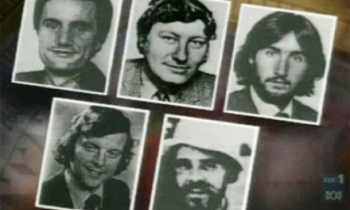As billions of fans tune to television coverage of the World Cup this week, Yahoo Inc. is looking to the month-long tournament as a chance to showcase its new approach to covering big news on the Web.
Yahoo, which manages the international soccer federation's Web site, is decking the site with interactive features -- blogs, chats and contests alongside three- to five-minute video highlights following each of the tournament's 64 games. Although it and other U.S. sites won't be broadcasting the games live online, fans will be able to post their own photos and videos on FIFAworldcup.com, which will also offer MatchCast -- a kind of animated telecast of the game that graphically displays players on the field, ball location, time outs and live scores.
Who argues more than sports fans? We've tried to give them a great mechanism to give their opinions on the Web with the most cutting-edge technology -- in as many languages as possible," Jorge Consuegra, general manager of Yahoo's FIFA partnership, said in an e-mailed interview. "Creating a global community around the biggest sporting event in the world -- that's the biggest step for this site."
Last July, Web experts hailed AOL's online broadcast of the Live 8 African relief concert as a watershed event for Internet video. Since then, the face of new media has changed, marrying television-style programming with various other forms of Web-based tools, such as Google Video, iTunes video and YouTube. Networks are increasingly looking to the Internet and even mobile phones as the way to distribute their content, and in turn consumers are logging on by the millions for events such as the NCAA tournaments streamed live on CBS SportsLine.com.
Web-based media companies are aiming to give viewers a montage of news, video, messaging, blogging, e-mail, games and photo sharing. The desired effect is to take viewers directly from the news to commentary, and from reading to then communicating with friends and co-workers, all on one screen.
But companies are still testing what consumers want, what advertisers will buy and how to filter the right user-generated material onto their sites. And the World Cup is the latest major worldwide event to highlight online media's attempt to figure all this out.
"Everybody in the business is thinking about how to go from just text and photo to user-generated photos," said Charlie Tillinghast, president of MSNBC.com. During the Winter Olympics in Turin, Italy, the site integrated message boards for each article and each sport -- a popular feature that MSNBC.com then rolled out to the rest of its Web site. "The challenge is about keeping things germane and relevant -- any serious Web site has to think about that."
User participation can be both the new media's biggest foe and their biggest ally.
"One of the key differences with new media relative to old media is that it allows people to participate," said Phil Leigh, senior analyst of Inside Digital Media Inc., a Tampa research firm. "Sometimes [that participation] is just white noise, but every now and again there's a breakthrough," he said, in which users contribute information in a way that adds to the experience.
Online encyclopedia Wikipedia is one of the most successful examples of a self-policing, user-written, user-edited site that is generally reliable and factual, Leigh said. Sites like MSNBC, Yahoo, AOL and Google that strive to add more user material will have to filter that content.
When it works, the idea of letting users contribute while they're consuming media might feel like watching television in the same room as people with similar interests.
That's precisely what AOL's In2TV broadband television network will be trying to replicate when it integrates instant messaging onto In2TV later this year, said Jim Bankoff, AOL's executive vice president for programming. In2TV offers free webcasts of old TV shows.
"Video is a catalyst for an overall Web experience to do what people do when they talk about these things," whether it's sharing memories about old shows such as "Welcome Back, Kotter" or discussing the finer points of a Bruce Springsteen concert video, Bankoff said. "Interactivity is what makes the difference."
Adding that dimension can change advertising strategy as well. With the FIFA World Cup site this year, for example, Yahoo is experimenting with corporate sponsorship for each of its separate features. Sportswear maker Adidas AG, for example, is sponsoring a goal counter. Emirates airline is sponsoring a game time chart. Global Gillette is sponsoring the online voting for the Best Young Player award. And McDonald's Corp. is sponsoring the site's fantasy soccer, which had 440,000 people signed up on opening day of the tournament.
The marketing itself can play a role in bringing people back to the site, said Yahoo's Consuegra: "It's all about giving fans something to do once the game is over -- we have to be that bridge for fans that carries them from game to game."









